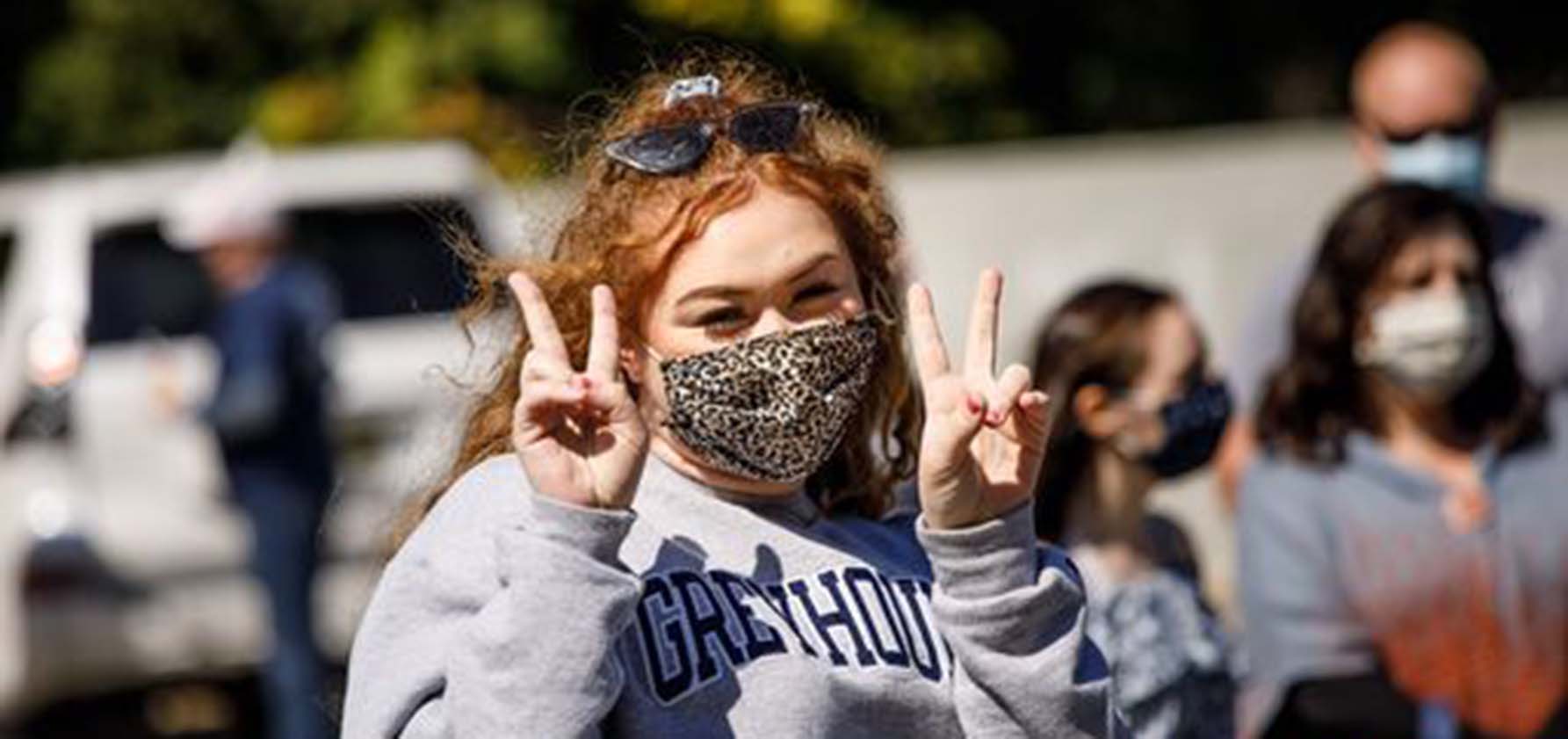
Questions about COVID-19 abound, and concerns have risen about how to stay safe as cold and flu season approaches. Kara Mosovsky, assistant professor of biology with expertise in immunobiology, has answers to a few of your most common queries.
How are COVID, the flu, and the common cold different?
The flu is caused by the influenza virus and it affects your respiratory tract. You feel all achy and fatigued when you have the flu largely due to your immune response to the pathogen, which involves some pro-inflammatory signaling that results in those non-respiratory symptoms. The common cold is caused by some 200 viruses, all of which are different and distinct from the influenza virus. A few of the common cold viruses are members of the coronavirus family, but so are the viruses that caused the deadly SARS outbreak in the early 2000s, as well as the virus that causes MERS. In the end, it is inaccurate and unhelpful to call our SARS-CoV-2 virus “just another common cold virus” when it clearly causes a much more complicated and deadly disease. Interestingly though, some studies have suggested that protection gained from battling one of the common cold coronaviruses in the past might offer some level of current protection against SARS-CoV-2. More scientific research is needed to understand this interesting connection.
Why is it especially important to get the flu shot during the COVID pandemic?
The flu virus damages your respiratory tract, which inevitably decreases the innate barriers in place to protect you from other respiratory pathogens. It might make it easier for COVID to get a foothold if the normal barriers are damaged or removed. Of course, you wouldn’t want to have both the flu and COVID at the same time, as that would probably exacerbate symptoms. Also, diagnostic testing centers are burdened right now, so we want to minimize flu diagnostic tests, to leave room for COVID testing.
Does the flu vaccine cause the flu?
Great question, but the answer is no! The intramuscular flu vaccine is inactivated. We don’t say the virus has been killed, because it was never alive, but it has been rendered incapable of causing infection. You may feel slightly under the weather after receiving a flu shot for a number of reasons: your immune system is still responding to the foreign virus and you may feel a bit fatigued as a side effect of this response; you may get sick with another respiratory virus (there are hundreds of other viral respiratory pathogens); you may get the flu before your immunity kicks in (it takes about 7 to 10 days to become protected); and the flu shot isn’t 100 percent effective (nor does it claim to be). Scientists research and predict the strains most likely to be circulating in a population 6 to 10 months in advance so that they have enough time to manufacture and distribute the vaccine in time for the next flu season.
Why don’t antibiotics work on viruses?
Antibiotics usually work by targeting synthesis processes (making new DNA, making new proteins, breaking down nutrients). Bacteria need to do the same types of things as our own cells, but they do it using slightly different structures. Antibiotics target the bacterial structures that carry out these processes without affecting our own structures and processes. Viruses are not alive and can’t do any of these life processes on their own. They can only do them by commandeering a host cell and using the host cell machinery as its own (as if a pirate broke into a factory and used the machinery to make something for himself/herself). It’s much harder to develop antivirals because there aren’t many unique viral activities to target since the virus is using the host’s cellular machinery to do its dirty work.